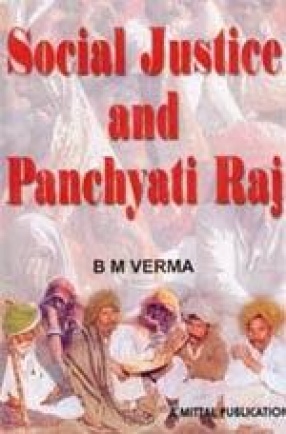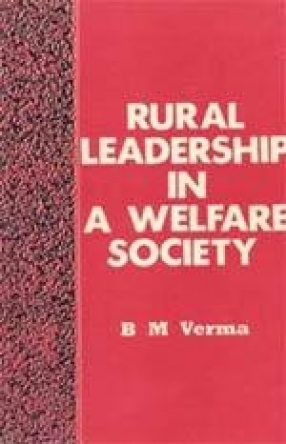Social Justice in Panchayati Raj has undergone a major change of direction in the light of The constitution Saventy-third Amendment (Act), 1992. in the backdrop of social transformation, social justice inall its dimensions, i.e. fairness, entitlement, equality, and impartiality has been opearationalised through democratic decentralization. For preservation of human rights, and to sustain functional demcocracy, the study analyses the process of political re-structing and examines the institutional changes in the new paradigm of development. In order to find out the gap between policy formation and policy-implimentation, the operastinal dynamics of the New Panchayati Raj Actk has been studied. Further, to achieve the goal of distributive justice, both structural and contextual factors to revitalize the power devolution in favour of weaker sections call for the observance of rule of law. For evolving a sound substructure of democratic government supported by social development, it is necessary to reinvent a new democratic system of government and governed. The author attempts to test the implicit operastion of self-rule in federal polity in the quest of not only the genral investigation of the twin policy goals, “ growth with social justice†and ‘equitable distribution’ but also anticipated form and content of democratric vision in politics. The role performance of street-level bureaucrats and local political executives for eradication of poverty has been scanned towards the aim of designing an integrated system of decentralized administration. The study also suggests new measures for effective development, and management of Panchayati Raj institutions. Policy makers, planners and administrators will find the present study highly valuable.
Social Justice and Panchayati Raj
by B.M. Verma
$18.00
$20.00
In stock
Free & Quick Delivery Worldwide
All orders amounting to US$ 50 or more qualify for Free Delivery Worldwide. For orders less than US$ 50, we offer Standard Delivery at $14 per book.
ABOUT THE AUTHOR B.M. Verma
Dr. B.M. Verma (b. 1936) M.A., Ph.D. in Sociology (Gold Medalist)from Institute of Social Services, Agra, presently on the faculty of the Indian Institute of Public Administration, New Delhi, has conducted several research studies and consultancies on the problems of Cast, joint Family, Panchayati Raj, Bonded Labour, Social Welfare and Development of Scheduled Castes and Rural Development, including IRDP, TRYSEM, DRDA and Rural Industralisation. Dr. Verma has contributed many research papers to professional journals, and books brought out at National and International levels. He has published two books, viz. (i) Decentralisation in Administration (1990), (ii) Administration of Agricultural Development (1989). Besides this, he is co-author of a book and a Report submitted to the National Commission for Scheduled Castes and Scheduled Tribes, Ministry of Welfare, Government of India. He has participated in a number of Seminars, Conferences, Training Programmes and Workships organised by the National and International Agencies including Economic and Social Commission for Asia and Pacific, Eastern Regional Organisation and United Nations Organisation. He has presented two country papers on (i) "Agricultural Delivery Service System in India" in XI EROPA Confernece (1985) in Bangkok (II) "Decentralisation for Rural Development in India-A Case Study" in the First Project Review Meeting on" Decentralisation for Rural Development which was sponsored by Asian and Pacific Development Centre Malaysia in collaboration with Konrad Adenauer Foundation, Federal Republic of Germany.
reviews
0 in total
Review by Anonymous
Be the first to review “Social Justice and Panchayati Raj” Cancel reply
You must be logged in to post a review.
Bibliographic information
Title
Social Justice and Panchayati Raj
Author
Edition
1st ed.
Publisher
ISBN
8170998662
Length
xvii+350p., Tables; Map; Annexures; Appendices; References; Bibliography; Index; 22cm.
Subjects
more by B.M. Verma see more
similar bookssee more
Procurement and Marketing of Minor Forest Produce in Tribal Areas
Tribals constitute the ...
$22.50
$25.00






There are no reviews yet.